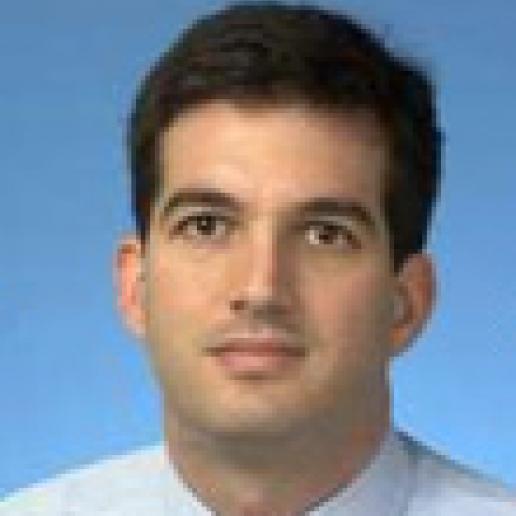Michael Pignone, M.D., a 2009-10 Packer Policy Fellow, is professor of medicine and chief of the Division of General Internal Medicine at the University of North Carolina, Chapel Hill. He is also a fellow at the Lineberger Cancer Center and senior fellow at the Cecil Sheps Center for Health Services Research, where he also serves as co-director of medical practice and prevention research. Pignone's research is focused on chronic disease prevention and physician-patient communication and decision-making in primary care settings. His main areas of interest include heart disease prevention, colorectal cancer screening, and disease management for common chronic illnesses, such as diabetes, depression, heart failure, and chronic pain. Pignone received his medical degree and residency training in primary care internal medicine from the University of California, San Francisco. He then received fellowship training in clinical epidemiology and health services research through the UNC Robert Wood Johnson Clinical Scholars Program, and his master's degree in epidemiology from the UNC School of Public Health
Project: Pignone's project aims to determine the feasibility of implementing a national biennial bowel cancer screening program in Australia. Bowel cancer screening with annual of biennial faecal occult blood testing has been shown to reduce disease-specific incidence and mortality in randomized trials for adults ages 50-75. Currently, Australia has a limited screening program, but has not yet committed to a full program of biennial screening due to concern about program costs and whether sufficient infrastructure is available. Pignone's project aims to ascertain the approximate costs and benefits (in terms of life years gained) from full implementation of such a program. He will use cost and cost-effectiveness modeling (using data from the existing screening program) to estimate costs associated with key aspects of the program, including costs of: screening tests; diagnostic and surveillance colonoscopies; program administration; and adherence outreach, quality assurance, and efforts to reduce socio-economic, geographic, and ethnic disparities.
Career Activity Since Fellowship: “The Australian-American Health Policy Fellowship was an outstanding opportunity to learn about a different health care system and culture, as well as a wonderful family experience. I received excellent support from colleagues at the University of Sydney and the Australian Department of Health. Upon my return, the CDC commissioned me to perform a cost analysis of colon cancer screening in the US based on the work I did during my Fellowship in Australia.”
Current Position: Professor of Medicine , Chief, Division of General Internal Medicine, University of North Carolina Chapel Hill
Email: [email protected]
Publications
Howard K, Brenner AT, Lewis C, Sheridan S, Crutchfield T, Hawley S, Nielsen ME, Pignone MP. A comparison of US and Australian men's values and preferences for PSA screening. BMC Health Serv Res, 2013
Howard K, Salkeld G, Pignone M, Hewett P, Cheung P, Olsen J, Clapton W, Roberts-Thomson IC. Preferences for CT colonography and colonoscopy as diagnostic tests for colorectal cancer: a discrete choice experiment. Value Health, 2011
MP Pignone, KL Flitcroft, K Howard, LJ Trevena, GP Salkeld, DJ St John. “Costs and cost-effectiveness of full implementation of a biennial faecal occult blood test screening program for bowel cancer in Australia.” Medical Journal of Australia. 2011
KL Filtcroft, DJ St. John, K Howard, SM Carter, MP Pignone, GP Salkeld, LJ Trevena. "A comparative case study of bowel cancer screening in the U.K. and Australia: evidence lost in translation." Journal of Medical Screening. 2011.
